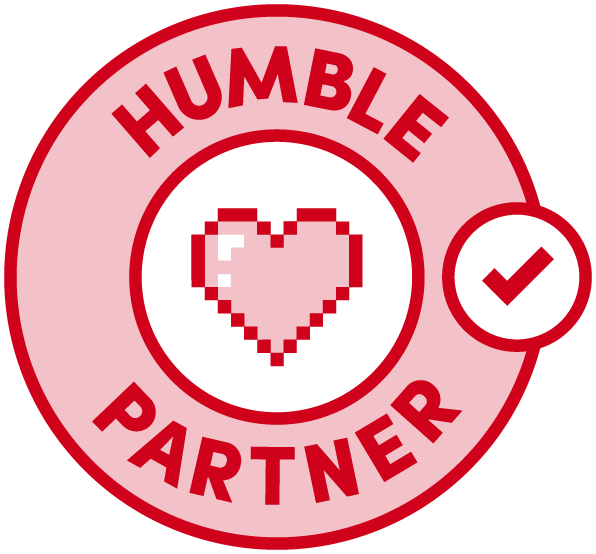Phil Spencer Says Cloud Gaming Is Inevitable, But Won’t Replace Consoles
Phil Spencer, head of Xbox, has a lot on his mind, from the next generation of Xbox consoles to helping build new development teams. He and the team are also managing an ecosystem that’s trying to serve as many players’ needs as possible. And as he sees it, cloud-based gaming touches all of those areas, which is why he’s been championing Project xCloud. It’s Microsoft’s game streaming technology that will let you access the power of an Xbox console through your phone via an internet connection. We recently got the opportunity to talk to the head of Xbox about a number of topics, including how he sees xCloud fitting into Xbox’s repertoire, and within an industry that’s traditionally orbited around consoles in the home.
“It’s one of the directions the industry is headed. To me, it’s about what you as a gamer want to do, and I’m not trying to tell you that owning a box that plays video games is a bad thing or that somehow that’s not needed.” Spencer continued, “I think that the cloud inevitability as part of gaming is absolutely true. But we have more compute devices around us than we’ve ever had, whether it’s your phone, a Surface Hub, or an Xbox. The world where compute devices are gone and it’s all coming from the cloud just isn’t the world that we live in today.”
Physical devices are still very much part of the equation when it comes to cloud gaming, but Xbox itself isn’t making a new device specifically for it. “Last year we talked about xCloud and then we said we were working on new game consoles, but that’s all I said.” Spencer clarified, “We didn’t say that [a streaming console was in the works]. I think maybe some people thought that that was the disc-less one that we just shipped. We are not working on a streaming-only console right now. We are looking at the phone in your pocket as the destination for you to stream, and the console that we have allows you to play the games locally.”
“If you bought a big gaming PC and you like playing games there, I want to respect that and meet you where you are and bring the content and services that you want to that device. If you want to buy an Xbox, if you want to play Minecraft on a PlayStation, I want to make sure that comes to you there.”
One of the chief concerns that has always surrounded cloud gaming is lag. Specifically, how fast your controller inputs will translate to action on a screen. It was an issue in some cases for Google Stadia demos, especially for fast-paced shooters such as Doom. Spencer recognizes this and makes no bones about those concerns, saying “I don’t think anybody should tell you that there’s no lag.”
“Going back to our transparency, there’s a truth that I think is always important for us to talk about with our customers. In xCloud, we are building a convenience capability to allow you to take your Xbox experience with you. Meaning, that’s why we focus on the phone, and the experience is not the same as running the games on an Xbox One X. I’m not going to say that it’s an 8k 120 hertz thing. That’s not what we’re doing. We’re going to bring convenience and choice to you on your phone.”
“You can jump in a party, we can voice chat. Everything works the same as it does when I’m sitting with my console from a community and content perspective but you’re running it from a cloud, which is going to feel different.”
We talk about Project xCloud and we use words like “trials” not because we don’t believe in our tech–our tech is as good as anybody’s tech out there, and the team is doing really amazing work–but this is about the reality of time and choice for customers.
Given that he’s been traveling with an early version of xCloud on his own phone playing games on it out in public, it would seem that xCloud is in a feature-complete state. Public trials start in October this year (a month before Google Stadia), but we asked if it’ll launch as a fully-formed service. “We will start in 2019, this year, in certain markets and then we will just continue to roll it out. We’re doing our internal trials with xCloud now, which means people on the team can now install the application on their phone and stream games.”
“One of the benefits we have working at Microsoft is the Azure data centers globally, which allow us to put hardware as close to people as we possibly can. And we can leverage the fact that Microsoft has spent a lot of money establishing data centers to help us accelerate this build. So we’re going to start in 2019 and have people playing Xbox games on their phones, and we’ll get a ton of feedback.”
Project xCloud’s launch this year only marks the beginning for the Xbox game streaming service; Microsoft will continue to iterate on it while its in players’ hands, and Spencer emphasizes that technological shifts take time. “I think this is years away from being a mainstream way people play. And I mean years, like years and years.”
“Let’s take Netflix, which is 20 years old. I think we forget that sometimes because tech moves so fast. It’s 20 years old at this point, so it took two decades for us to get to the point where shows like Game of Thrones and House of Cards are some of the biggest shows in the planet and mainly watched via streaming. I think game streaming will get there faster than 20 years, but it’s not going to be two years. This is a technological change. While it seems like it happens overnight, it doesn’t.”
“It takes time for these services to evolve. We are building for the long-term, but that’s why choice is so critical. I’m not trying to say go sell your consoles today and switch over to streaming because the experience just isn’t the same as playing on your console, but I do think in terms of reaching everybody, the democratization of play and content, it’s important that we don’t lock all of these experiences behind purchasing a certain device.”
“And way over time, we’ll have a global service that can reach everybody and the infrastructure to reach any customer with a consistent and high quality internet service, but that’s going to take time. We talk about Project xCloud and we use words like “trials” not because we don’t believe in our tech–our tech is as good as anybody’s tech out there, and the team is doing really amazing work–but this is about the reality of time and choice for customers.”
Down the road, the evolution of xCloud could lead to some creative uses; we’ve seen hints of it in Crackdown 3‘s multiplayer and how it handles physics. But Spencer and the team are thinking outside of games themselves as they have plans to make it an integral part of the industry’s biggest convention, saying “At E3 [in the future], our plan is to allow people coming to the show to actually play games, play Xbox games on phones at the show.”
Part of cloud gaming’s success, and xCloud in particular, rests in how developers account for the new technology. It’s also an aspect that Xbox is already getting ahead of, and Spencer detailed how the team is doing it. “We’ve already started putting xCloud servers near locations where our largest third party developers are. So now we’re starting to get developers at third parties on it so they can see their game on a phone, which is critical because there are things like font sizes that if you wanted to take advantage and understand how the game runs on the phone, you want to make it available. You want them to see it and experience it themselves.”
“We’ve also already put into the Xbox SDK, because if you’re streaming, a developer might want to do something different if the game was running locally. All the developers that are building Xbox games today have access to that capability of determining whether the game is being streamed or running locally, which I think is a great addition.”
“You’ll have certain developers that will take advantage of it early. We already have some of the early adopters asking for [it], because there are certain things that the cloud makes more possible than happened in the home. A good example of that is our blades right now that have all the Xboxes in the data centers have multiple Xboxes on one blade…basically like a bunch of Xboxes in your house that are hardwired together. So the latency between all of those consoles is negligible. It’s almost a zero because they’re literally hard-wired together. If we were to play games online, there is latency from where you live and I live, right? Our two Xboxes just take time to sync.”
More Exclusive Phil Spencer Coverage
Our conversations with Phil Spencer covered much more in addition to this deep dive into Project xCloud and cloud gaming’s place in the industry. For more inside looks at Spencer and his thoughts on the past, present, and future of Xbox, check out all our coverage in the stories linked below.
- Phil Spencer Is Exactly Who You Think He Is
- Phil Spencer Doesn’t Believe In Your Console War
- Xbox Boss Phil Spencer Reflects On Microsoft’s E3 2019
- The Inside Story Of The Troubled Xbox One Reveal
- Microsoft’s Vision For Xbox Scarlett Is More Than Just Prettier Graphics
from GameSpot – Game News https://www.gamespot.com/articles/phil-spencer-says-cloud-gaming-is-inevitable-but-w/1100-6468840/



Leave a Reply
Want to join the discussion?Feel free to contribute!